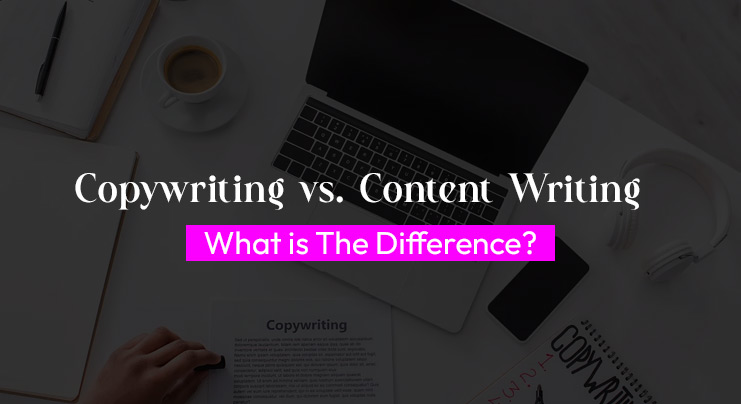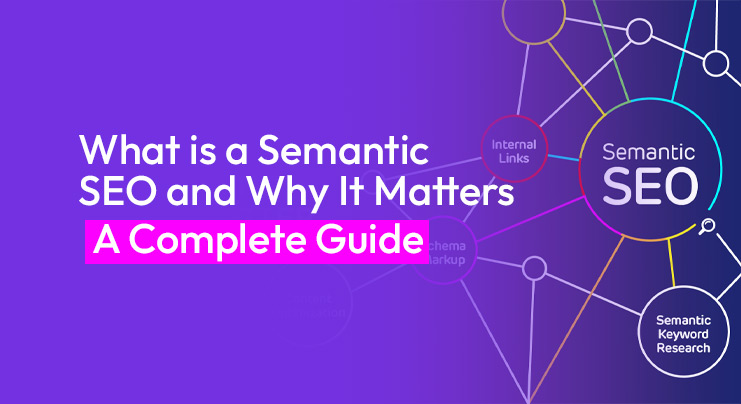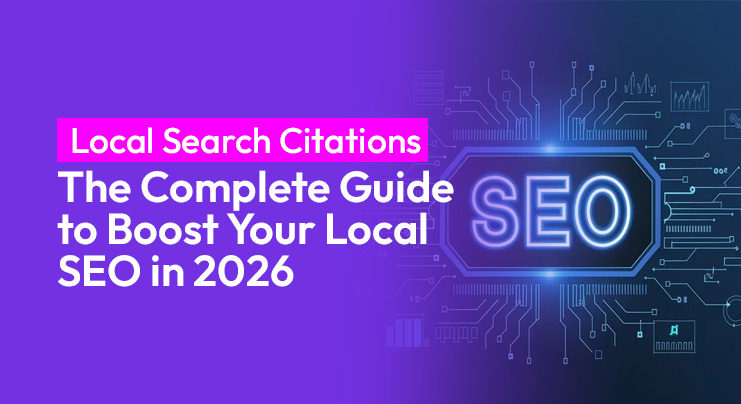If you have ever found yourself Googling “copywriting vs. content writing” because the terms sound frustratingly similar and you are not alone it’s the same feeling.
The art of copywriters is to make your text (copy) on the site work, to turn the people who visit your site into your buyers. These are what you read in online advertisements, billboards, emails and the likes. Whereas The content writers on the other hand come up with valuable content that will captivate and inform your audience. Content writers usually write long and short form blogs, eBooks, and whitepapers.
Here’s the simplest way to remember it: Copywriting sells. Content writing educates.
In this guide, we will break down the real-world difference between copywriting and content writing in practical. You will learn when to use each, how they complement one another, and which one to hire with examples, pricing, and strategy frameworks.
Understanding the Basics: What is Copywriting Vs Content Writing
- Copywriting is written to persuade or sell.
- Content writing is written to educate, inform, or engage.
Think of marketing like a relationship:
- Copywriting is the flirtation — it grabs attention and sparks immediate action.
- Content writing is the conversation — it builds trust, familiarity, and loyalty over time.
Purpose drives everything. Copywriting converts attention into action and Content writing nurtures that attention into long-term trust. But You need both for sustainable business growth.
The 5 Practical Differences Between Copywriting and Content Writing
Here are five real-world ways for differentiating Copywriting vs. Content Writing these two writing disciplines differ in goal, tone, structure, and strategic value.
1. Goal & KPI — Conversion vs. Engagement
- Copywriting’ s goal: Trigger immediate action — buy, subscribe, or inquire.
- Content writing’s goal: Keep readers informed, entertained, or loyal — increasing on-page engagement and SEO visibility.
Example:
- “Save 30% Today — Only Until Midnight!” → Copywriting
- “10 Ways to Choose the Right Marketing Platform” → Content writing
KPIs tell the story:
- Copywriting → Conversion Rate, CTR, Leads
- Content Writing → Organic Traffic, Dwell Time, Backlinks
Copywriting moves revenue and Content writing builds authority. Both together move brands.
2. Format & Length — Short vs. Long
Copywriting thrives in short, emotionally charged formats — think ad copy, taglines, product pages, and CTAs.
Content writing expands into longer, educational pieces — blogs, eBooks, guides, and whitepapers.
Think of copywriting as the spark, and content writing as the flame that sustains the fire.
One captures attention, the other builds depth and relationship.
3. Tone & Voice — Persuasive vs. Informative
Copywriting often plays on psychology — emotion, urgency, desire, and aspiration.
Content writing plays on credibility — clarity, empathy, and value-driven storytelling.
Example:
- Copywriting: “Don’t just exist — thrive. Start your fitness journey today.”
- Content writing: “Here’s how to build a sustainable fitness routine that actually fits your lifestyle.”
Content writing and copywriting both are powerful. One motivates action, the other cultivates connection.
4. Skills & Process — Psychology vs. Research
Copywriters master human behavior — understanding what makes people click now.
Content writers master subject depth — creating trust through well-researched, SEO-friendly storytelling.
Copywriters think: “What will make them buy today?”
Content writers think: “What will make them stay tomorrow?”
That’s why hybrid writers are more preferred those skilled in both are in such high demand. They write content that ranks and converts.
5. When to Use Which — Sales vs. Brand Building
Use copywriting for direct sales or conversion-driven goals (ads, landing pages, funnels).
Use content writing for brand building, education, or SEO strategy (blogs, newsletters, case studies).
Example:
You might publish a blog that educates (content writing), then use an ad or email that converts (copywriting).
The best marketers know, it’s not either/or, it’s when and how. Learn how to craft scroll-stopping ad copy that boosts clicks and conversions in our complete guide to Meta Ads Copywriting.
Quick Comparison Table: Copywriting vs. Content Writing
| Aspect | Copywriting | Content Writing |
| Goal | Persuade & Convert | Inform & Engage |
| Tone | Emotional, Urgent | Educational, Consistent |
| Length | Short-form | Long-form |
| KPI | CTR, Conversions, Sales | SEO, Traffic, Retention |
| Best Use | Ads, Landing Pages, CTAs | Blogs, Guides, Newsletters |
Copywriting vs Content Writing: Examples for better understanding
Let’s visualize how this plays out in real life.
Example 1: Homepage Headline
- Before (weak): “We offer affordable digital marketing services.”
- After (copywriting): “Grow your business faster with digital marketing that actually converts.”
Why it works: It speaks to outcomes, not offers — and uses emotional, action-driven words.
Example 2: Blog Intro
- Before: “Content marketing is important for business growth.”
- After (content writing): “Ever wonder why some brands dominate Google while others get lost on page three? The secret isn’t luck — it’s consistent, optimized content that builds authority and trust.”
Why it works: It opens with curiosity and delivers instant value — the hallmark of great content writing.
Here’s a concise comparison table for SEO Copywriting vs SEO Content Writing:

Example 3: Email vs Blog Title
- Copywriting (Email): “Stop losing clicks — fix these 3 mistakes today.”
- Content Writing (Blog): “3 Common SEO Mistakes (and How to Fix Them for Good).”
Same core idea — different goals. One provokes immediate response; the other builds long-term value.
Fact: Featured snippets favor content that’s both clear and compelling. Strong content writing helps you structure valuable, well-organized answers that Google can easily extract, while smart copywriting ensures those snippets grab attention with precise, persuasive language. Together, they boost your chances of earning the top “Position Zero” visibility.
When to Hire a Copywriter vs. a Content Writer
If you are a business owner wondering who to hire first, here’s a simple breakdown:

Common Scenarios:
- Startup Launch: Go with copywriting — get quick traction.
- SaaS Growth: Blend both — copy for onboarding emails, content for knowledge hubs.
- Thought Leadership: Lean on content writing — build your digital authority.
How They Work Together: The Perfect Marketing Harmony
The most successful brands don’t choose between copy and content, they combine them.
Here’s how a typical marketing ecosystem flows:
Ad (Copywriting) → Landing Page (Copywriting) → Blog (Content Writing) → Email Nurture (Copywriting) → Case Study (Content Writing)
That’s how you turn clicks into customers and readers into raving fans.
The 30/60/90-Day Blend:
- Days 1–30: Publish SEO-rich content to attract attention.
- Days 31–60: Launch ad campaigns using conversion-focused copywriting.
- Days 61–90: Merge both — nurture leads through blog-driven email funnels.
The result? A brand that ranks, resonates, and converts — naturally.
Pricing Expectations & Rates: Copywriting vs Content Writing Difference
Rates vary globally depending on niche, expertise, and project type. Here’s a general idea:
| Type | Average Range | Pricing Model |
| Copywriting | $100–$300 per page | Per project or retainer |
| Content Writing | $0.10–$0.50 per word | Per word or article |
| SEO Copywriting | $150–$500 per page | Based on conversion goals |
| Retainers | $500–$3,000/month | For ongoing strategy |
What affects cost:
Experience, niche depth, research intensity, SEO integration, and measurable results.
Tip: Always ask for proof, conversion data from copywriters, performance metrics from content writers.
How to Test a Writer Before Hiring? Key Points
Not all writers are created equal whether for blogging and copywriting. Here’s a simple 6-point checklist to find your perfect fit:
- Portfolio Fit: Have they written in your niche or tone before?
- Case Studies: Can they show measurable results?
- Voice Match: Does their writing align with your brand tone?
- SEO Understanding: Especially crucial for content writers.
- Conversion Psychology: Key for copywriters.
- Paid Trial: Always test with a small project before committing.
Tools Used by Each Specialist: A Quick Checklist
Copywriters use:
- Headline analyzers (CoSchedule, Sharethrough)
- A/B testing tools & heatmaps
- Power-word databases
- Funnel design tools
Content writers use:
- SEO tools (Ahrefs, SurferSEO, Semrush)
- Editorial planning apps (Notion, Trello)
- Grammarly & Hemingway for clarity
- SERP analysis tools
Smart teams combine both sets, creativity with analytics.
Conclusion: Use Copywriting to Convert, Content Writing to Connect
In the end both copy and content writing are purposely the same, i.e., they are aimed at effective communication, yet they follow different paths on its way. Copywriting is all about persuasion and writing such messages that sell, motivate action and create urgency. The content writing is concerned with storytelling, education and trust in the long-term. The most successful brands do not divide the two- they combine the two in the most effective way. Attention is gained by a great copy, and sustained by a great content.
If copywriting is the heartbeat of your marketing, content writing is the soul that keep it alive. One drives momentum. The other sustains growth. Copywriting brings customers in and Content writing keeps them coming back. Together, they build the foundation of every thriving brand, a balance of persuasion and purpose.
Ready to scale with both? Explore our Professional Content Writing Services or claim your free today.
Contact Fulfillit Today — crafting words that attract, engage, and convert.
FAQs about content writing vs. copywriting
1. What is content copywriting?
The art of writing words in a manner that makes readers act, be it to purchase, subscribe, or to click is called copywriting.
2. What is content writing?
The writing of the content is directed at educating or informing the audience and creating brand loyalty and recognition.
3. How should a small business recruit content and copywriting person?
Begin with a copywriter to convert into and use a content writer to grow sustainably.
4. Is there any way we can hire one for both services?
Yes, there are hybrid content copywriters who are capable of producing blogs that are SEO-enriched and also high-converting copy.
5. What is the difference between SEO copywriting and SEO content writing?
Organic traffic is converted to leads by SEO copywriting, and SEO content writing creates that traffic.










